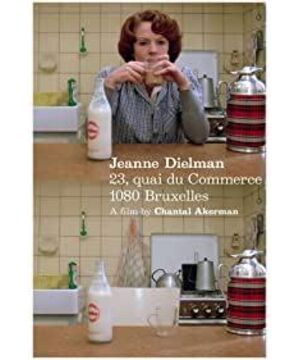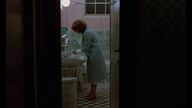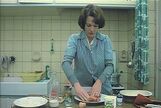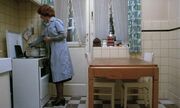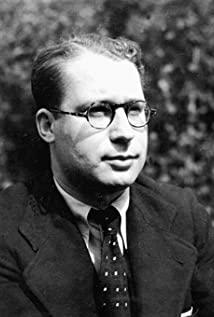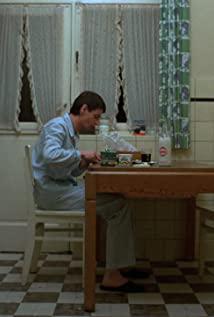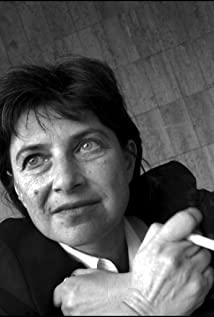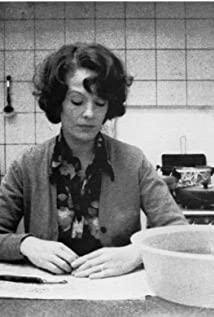Watching this movie, all the audience played the role of a voyeur. For example, Nagisa Oshima's "Sensual World" and "Undead of Love" also have a lot of voyeuristic characters, so that the viewer can directly substitute them.
Voyeurism is often associated with taboos, and this is no exception. Jeanne was a graceful middle-aged widow, and every afternoon she was regularly visited by clients. She would simmer soup or cook something over the fire during "working" hours, and then shower and clean without leaving a trace. Aside from this anomaly, she was a beautiful, refined and dedicated mother, taking care of her middle-school son, preparing breakfast and dinner for him, and even shining his shoes.
This woman with a hidden life will naturally also remind people that she has a hidden inner world. What is this? The deliberate avoidance of the scenes of love between men and women in the bedroom makes the viewer unable to stop. Is it the desire of a middle-aged woman? Or the so-called boredom of middle-class life? Not also.
The letter from the Canadian aunt shows that this kind of life is Jeanna's choice. In this small apartment, Jeanne is actually the "real power" here. "No reading while eating" at the dinner table. "Have you washed your hands?" This is the core of her day's work: eating. The procurement, washing and careful preparation of the two dishes for dinner, especially the arrangement of tableware and table, make the meal have a strong sense of ritual. If the most important dinner of the day is the ceremony, she is the high priest who presides.
Before going to bed, the son's conversation with his mother reveals the plot. Although the son took the initiative to start the topic, she took the initiative. She was the keynote speaker or the finisher. One was "Would a woman have sex with someone she doesn't like?" The other was "How did the beautiful Jeanne marry the father of the child?" The last was "Are women who have sex in a female marriage have pain and pleasure? Is the premature death of the father a punishment?" - and the last question is from the point of view of the son, who is a pure virgin, a devout believer - who no longer believes in God when he grows up. Jeannadot is the mother's squeak to her son, but the actual action is the answer.
She said, "When she was young, she didn't want to marry, she wanted a child." This is the core of Jeanne being Jeanne, the mystery of Jeanne's aura—a point that may have been lost among others, but she finally lived through it. such a life. In other words, in this small apartment, she is the master, in this big world, she "doesn't want to adapt to others and remarry", she is more or less.
"Having children" means the maturity and final completion of a woman's physical and psychological experience. "Not getting married" means abandoning "marriage" and choosing the freedom to control the body, which is actually spiritual freedom, which was "approximately equal" to sexual freedom in the 1970s. It's just that this sentence does not explain the price of such freedom - the transaction of money in sexual freedom. This is the crux of her mechanical, suffocating life, and the 5-minute contemplation at the end. This declares that the ideal of Jeanne, a young clerk, a young woman, is essentially non-existent, destined to appear in the form of imperfect impurities.
Jeanne's face is beautiful and varied, and is a well-known image of a European woman of that period. The story is fundamentally a woman's quest, exploring women's films. Feminism or feminism is often ambiguously misunderstood for being aggressive or obscure because of its twists and turns. In fact, this story is about the plight of the de facto "master" of life, the woman. The predicament she encounters because of her uncompromising nature is a personal epic.
What’s interesting is the structure of this single-parent family—the son’s physique and reading hobby—as a substitute for the role of “father” in a sexless marriage. The son not only relies on but also monitors his mother, with reminders of "buttons are not buttoned properly" and "hair is messy". Jeanne emerges as a 'protector' but also as a 'supervised' in a sacrificial position to maintain a social identity structure, while sex work is not only a source of income but also her freedom. As for the relationship between freedom and money transactions, it is another topic for discussion, but it is a challenge to her dominance - this is the deep reason why she fought back bitterly.
What is interesting is that the "exquisite big soup pot" is used as a symbol to maintain the "power source" of this structure. It stores prostitution funds, the family's source of income, and is placed in the middle of the dining table, the most conspicuous position. The jar, as we all know, as a container is also a symbol of women. On the second day, Jeanne didn't put the sugar bowl on immediately, the timing went wrong, and all the machinery broke down—so much so that the important dinner was overcooked.
It's all about the "big jar" and what it holds. This is my answer.
Baudelaire's Poetry Ends:
"The Enemy"
My youth is a dark storm , the
dazzling light flashes;
thunder and storms flood the earth
The red fruits are still left in my garden,
I turn to the shovel and rake
to re-plough the flooded land
. The deep pit it hits is like a tomb
...
Published on June 1, 1855, please refer to Qian Chunqi's translation for exact reference, Probably someone else.
View more about Jeanne Dielman, 23, quai du commerce, 1080 Bruxelles reviews


